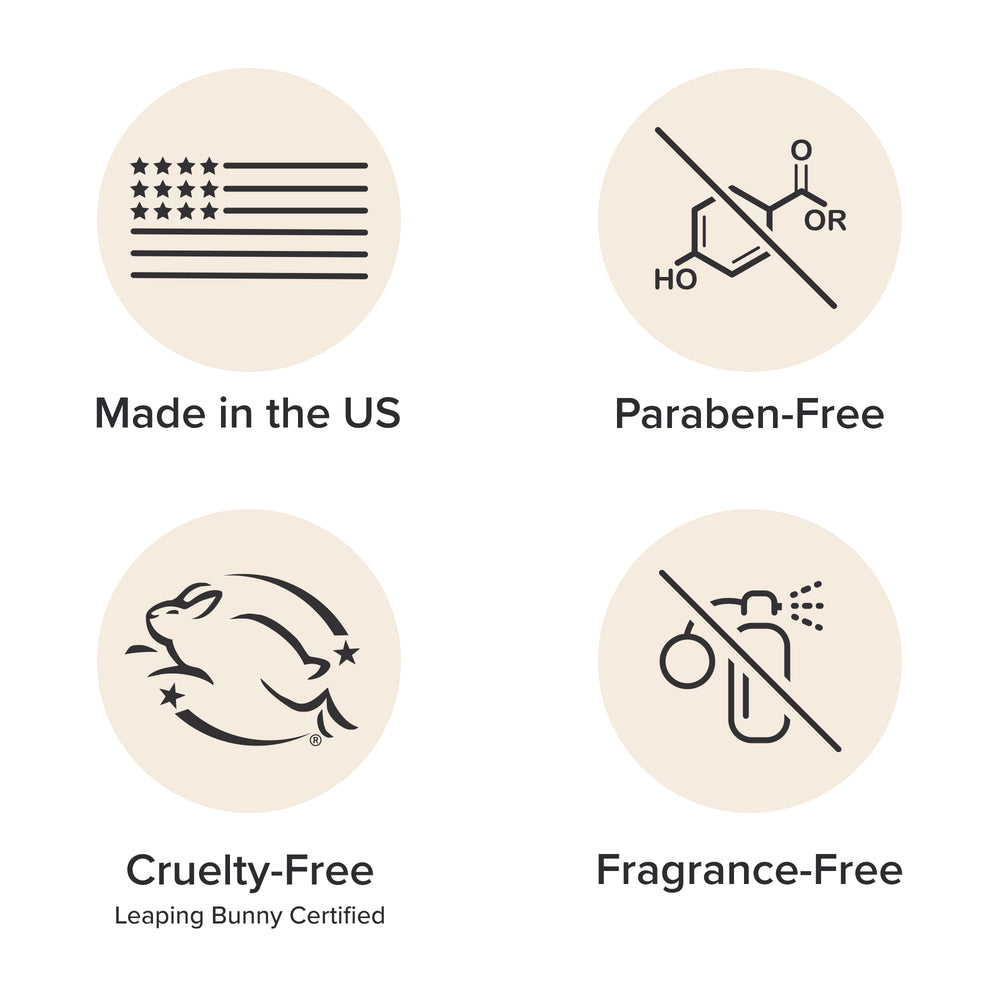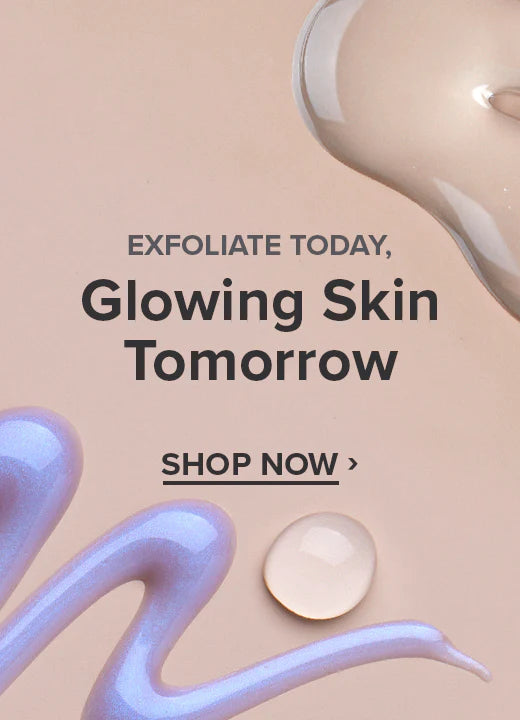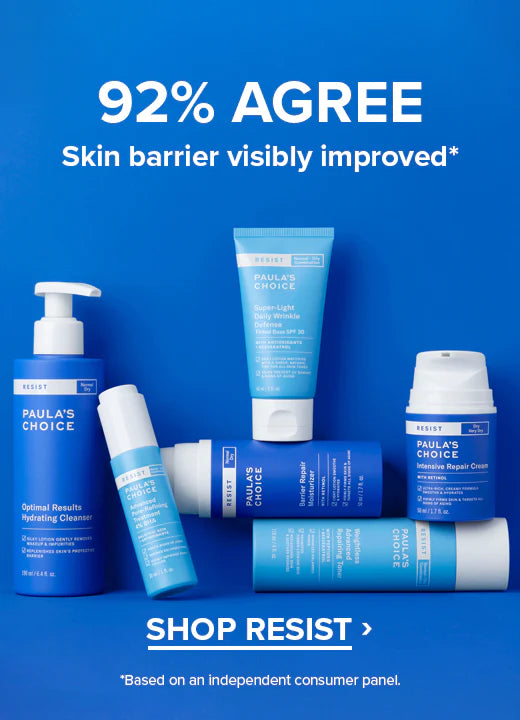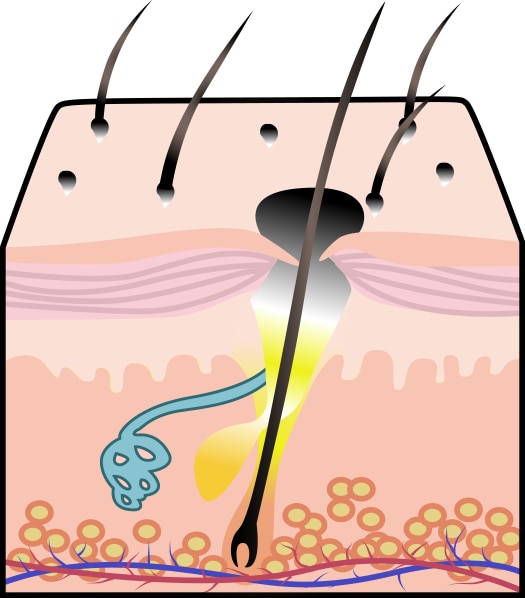Written by: Desiree Stordahl
Medically Reviewed by: Debra Jaliman MD Board-Certified Dermatologist
Updated on: 1/31/2024
In this article:
What are blackheads?
What causes blackheads?
Do blackheads enlarge pores?
Do blackheads go away on their own?
How to get rid of blackheads
Blackheads on the nose
How to get blackheads out of ears
What to avoid when treating blackheads
Should I use a scrub for blackheads?
Tips to prevent blackheads
Can I remove blackheads at home?
Paula's Choice products for blackheads
Blackhead myths
Have you been battling blackheads? You’re not alone. These pesky, tiny black dots often stake their claim on the nose, forehead, and chin. We’ll break down how to get rid of them and make sure they don't come back, starting with addressing their root cause.
What are blackheads?
Blackheads are a type of clogged pore that forms when dead skin cells combine with excess sebum and other debris in the pore lining. Once this mixture reaches the opening of the pore at the skin’s surface, it oxidizes, turning a blackish color, hence the name (1). Blackheads tend to arise in areas that are prone to producing more oil, such as your T-zone (forehead, nose, and chin), particularly around the nose area. They can occur on their own or sometimes alongside whiteheads as well as sebaceous filaments. Either way, they’re rather unwanted.
Although both are bothersome, the similarities between blackheads and whiteheads stop there. Blackheads are known as “open comedones” whereas whiteheads are referred to as “closed comedones” (2). Comedones are also referred to as clogged pores or small plugs (3).
Unlike blackheads, whiteheads are covered by a thin layer of skin, so the trapped substances within don’t oxidize and turn black. Instead, they accumulate as a white bump on skin.
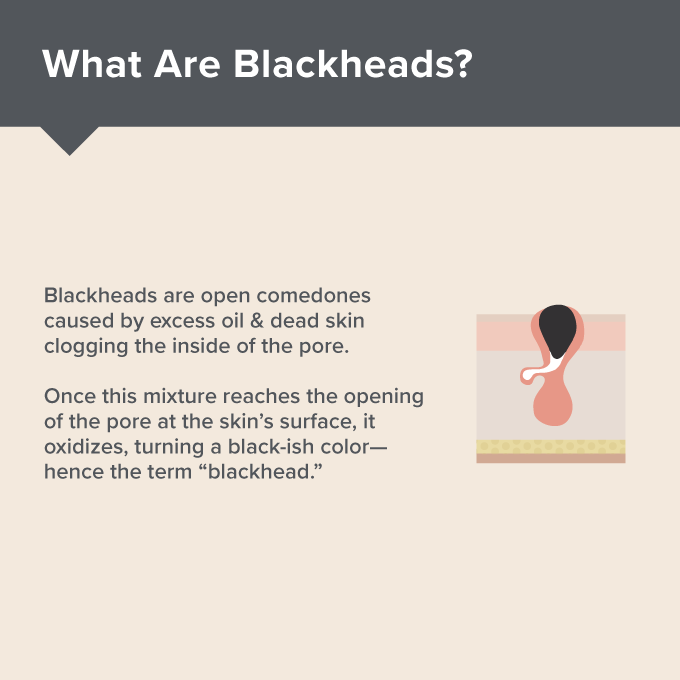
What causes blackheads?
Blackheads form deep in the lining of the pore, similar to how weeds root in the ground before surfacing. Contrary to popular belief, they aren’t caused by “dirty” skin (4). Here’s a step-by-step breakdown of exactly what causes stubborn blackheads:
- When too much oil is produced inside the pore, it has difficulty flowing freely to the surface.
- As the flow of oil gets backed up, it mixes with the built-up dead skin that isn’t shedding (exfoliating) as efficiently as it should.
- Once this occurs and the oil and dead skin at the top of the clogged pore are exposed to air, they oxidize, forming a blackhead (5).
Do blackheads enlarge pores?
Blackheads don’t enlarge pores (thank goodness!). However, they often accompany enlarged pores because they both have the same root cause. Enlarged pores are also the result of the pore producing too much oil, which is why they go together with blackheads so often – but they are not the cause!
Do blackheads go away on their own?
In some cases, the frequency of blackheads can diminish as a person ages. With age, oil production diminishes, though there are some people who continue to get blackheads throughout their lives. In both cases, treating blackheads takes consistency and dedication and the best course of action is to be proactive in getting rid of them instead of simply hoping for them to go away.
How to get rid of blackheads
To get rid of blackheads, it’s crucial that you incorporate a blackhead treatment into your skin care routine that can do all of the following:
- Reestablish, as best as possible, a normal flow of oil out of the pore lining.
- Minimize and absorb excess oil.
- Exfoliate built-up dead skin that isn’t shedding normally (2).
Using a well-formulated, non-abrasive, liquid exfoliant for blackheads (with salicylic acid, also called BHA) is key in this regard. It helps shed built up dead skin that would normally mix with oil in the pore and risk turning into a blackhead (6). This makes it effective for treating the blackheads you see now as well as preventing future ones from forming.
An exfoliant should accompany your normal skin care routine, one that begins with a gentle, water-soluble cleanser. Some may find it helpful to double cleanse to ensure makeup and other facial debris are completely removed. Just don’t go overboard—harsh cleansing (i.e., face washes that leave skin feeling stripped dry) can actually make matters worse.
Blackheads on the nose
To get rid of extra stubborn blackheads on the nose, you may need to bring out the big guns:
- Go for a stronger dose of BHA that you can use as a blackhead spot treatment two to three times per week.
- You can also experiment with a higher strength AHA + BHA peel one day a week for advanced exfoliation.
How to get blackheads out of ears
Blackheads don’t just appear on your nose or forehead – for some people, blackheads also show up inside their ears. For getting rid of blackheads in this tricky spot, the rules are the same:
- Follow a gentle skin care routine and exfoliate with a leave-on BHA liquid.
- Because this is a more delicate area, it’s advisable to keep it clean with a soft washcloth and apply a BHA liquid with a cotton pad or swab (though be careful to keep the swab out of the eardrum area itself to avoid any potential damage).
What to avoid when treating blackheads
Blackheads often get worse because of using the wrong skin care products, so make sure your skin care routine is free of the following:
- Skin-aggravating ingredients such as alcohol, peppermint, menthol, lemon, lime and eucalyptus—all of which cause sensitization that can trigger more oil production and make matters worse!
- Blackhead-removing strips. Pore strips remove only the very surface part of a blackhead, which has no effect on the pore, meaning it can quickly get clogged again.
- Bar soap. The ingredients that keep bar cleansers in their solid form can clog your pores.
Should I use a scrub for blackheads?
Using a gritty face scrub is not advised because blackheads are too deep in the pore to be removed by surface scrubbing, and the vast majority of scrubs contain hard, coarse particles that can irritate and damage your skin. That irritation can trigger a response in skin that leads to increased sebum production, which in turn equals more blackheads. Lose-lose!
What about a gentle face scrub with dissolvable particles? That’s fine to use as an extra cleansing step (part of a double cleanse) to fully remove your makeup, SPF and other debris. It won’t be a cure for all your blackheads, but it can complement your blackhead-reducing routine.
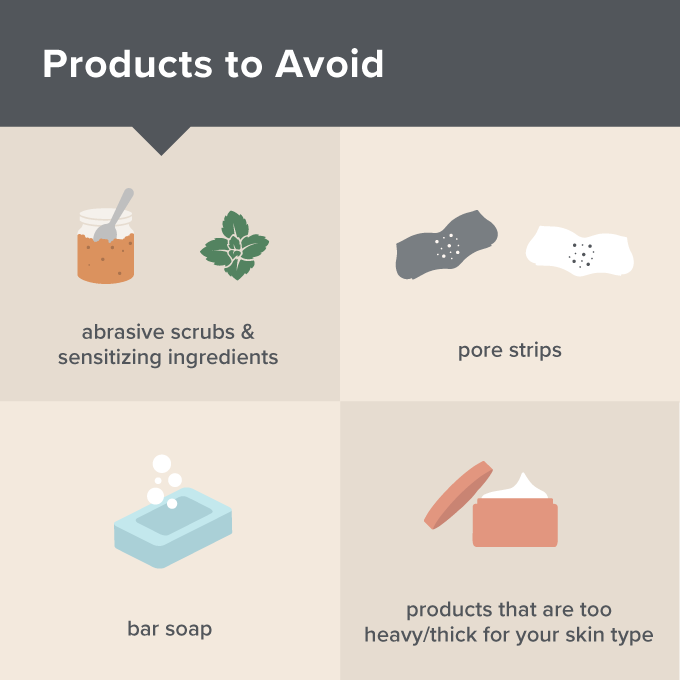
Tips to prevent blackheads
Once the blackheads are gone, continue the steps mentioned above to keep the problem at bay. Additional preventative measures to consider:
- Avoid overly emollient or greasy moisturizers in blackhead-prone areas. Try to use only gel, light fluid lotion, or liquid skin care products because most of the ingredients that give lotions and creams their thick consistency can clog pores.
- Take it a step further by absorbing excess oil. Those with oily skin and congested pores can benefit from an oil-reducing blackhead product or a non-irritating, absorbent blackhead removal mask made with charcoal and clays, like bentonite and kaolin.
Can I remove blackheads at home?
Manually extracting blackheads at home should be viewed as a last resort. Aggressive squeezing, poking, and prodding can aggravate skin and create a bigger problem than what you started with. Alternatively, a well-trained esthetician or dermatologist can extract blackheads without hurting your skin… though we recognize that’s not an accessible option for everyone. We recommend using a skin care routine like the one outlined above with pore-controlling ingredients for more consistent results.
Which Paula’s Choice products should I use if I suffer from blackheads?
Paula’s Choice offers a wide range of products that cater to different skin types experiencing blackheads. Here’s an example of what your ideal routine could look like (feel free to swap out products to fit your skin’s exact needs).
- CLEAR Pore Normalizing Cleanser
- SKIN BALANCING Pore-Reducing Toner
- 2% BHA Salicylic Acid
- 10% Niacinamide Booster
- CLEAR Ultra-Light Daily Hydrating Fluid SPF 30 (AM)
- CLEAR Oil-Free Moisturizer (PM)
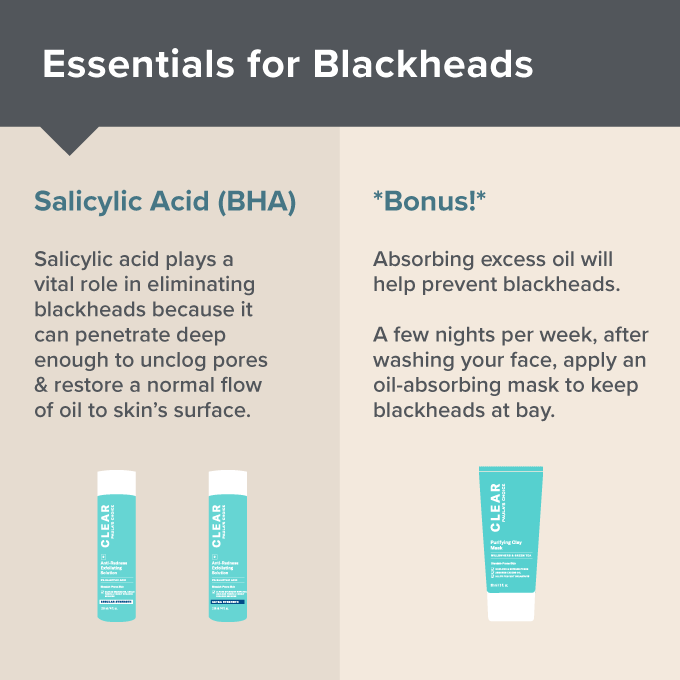
Blackhead myths
There are quite a few myths swirling around on social media about blackheads and how to tackle them. Misinformation can lead people away from the correct treatment for their blackheads. We’re setting the record straight on two of the most prevalent blackhead myths.
First, there’s the myth that people with dry skin don’t get blackheads. The truth is even someone with dry skin may still see blackheads, especially on the nose. The reason is that the nose has more oil glands than any other part of the face, and excess oil is a key component in the formation of blackheads.
Also keep in mind that although excess oil is a major contributing factor, the pore lining also plays a critical role in blackhead formation. When the pore lining becomes damaged, misshapen, or is just smaller than normal, it makes it much easier for clogs to form.
Second, there’s a misconception that blackheads are caused by improper hygiene (a.k.a. “dirty skin”). While it’s true that washing your face is a critical step in the fight against blackheads, that doesn’t mean that people with blackheads aren’t already taking the proper measures to clean their skin. The cause of the issue is rooted much deeper than that and blackheads may simply be something you’re genetically prone to based on your skin type (7).
Learn more about blackheads.
References for this information:
- Pediatric Dermatology, November 2015, pages 316-317
- American Family Physician, January 2000, pages 357-365
- JAMA, February 2015, page 640
- Journal of Clinical Pharmacy, July 2019, pages 17-45
- Primary Care: Clinics in Office Practice, December 2015, ePublication
- Indo American Journal of Pharmaceutical Research, July 2015, pages 2,512-2,522
- Research & Reviews: Journal of Pharmacology, 2014, pages 1-12


